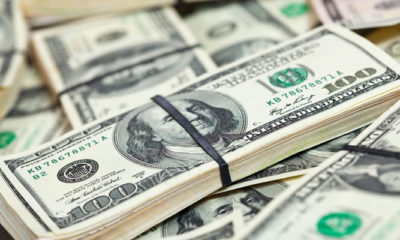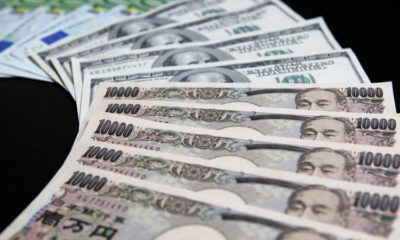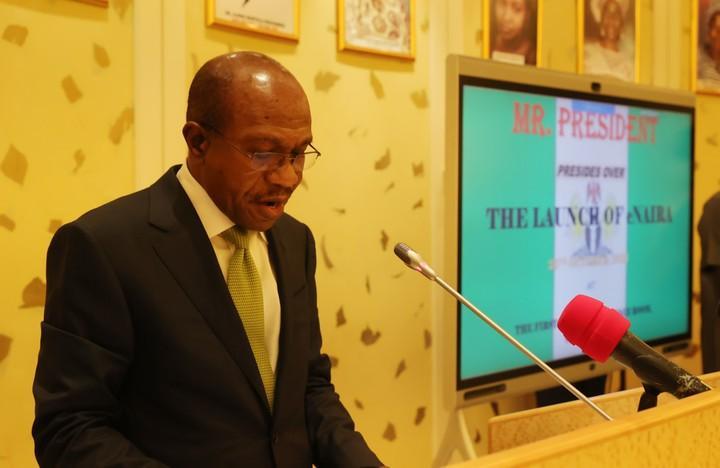- CBN Pumps $26.765bn into FX Market in 20 Months
The Central Bank of Nigeria (CBN) has pumped $26.765 billion into the interbank segment of the foreign exchange (forex) market since it started its forays into the market in February last year, figures compiled have shown.
The amount of the weekly forex sales increased by $3.508 billion, from N23.257 billion as of August 8, to $26.765 billion as of November 21.
A breakdown of the forex intervention in the past three months showed that while between August 10 and August 28th, the central bank intervened with a total of $1.290 billion; in September it sold $1.250 billion; in October only $210 million was sold and in November, the regulator has so far intervened with $757.16 million.
An analysis of the dollar sales showed that in 2017 alone, the bank intervened with a total of $15.043 billion and between January and November 21 in 2018; it has pumped in $11.5 billion in the market.
The naira exchange rate has remained stable since last year when the central bank commenced the forex sales.
Average exchange rate of the naira to the US dollar on the interbank and BDC segments is N305.79/US$ and N362.25/US$ respectively.
The average exchange rate at the Investors’ & Exporters’ Window has been around N363/US$.
In April 2017, the CBN introduced a new exchange rate window, the Nigerian Autonomous Foreign Exchange Fixing Mechanism (NAFEX), commonly known as the Investors’ and Exporters’ (I &E) window.
The I & E window and the interbank market have been seen as the main exchange rate windows utilised in foreign currency trading.
Analysts recently predicted that the combination of tightening global financing conditions, which has resulted to capital outflows in the country, the elevated global risk aversion, 2019 election uncertainties and high services payments were likely to put pressure on the naira going into next year.
Analysts at CSL Stockbrokers Limited and the Financial Derivatives Company Limited (FDC), who stated this in two separate reports obtained by THISDAY recently, argued that capital repatriation by foreign investors was also expected to heighten dollar demand.
But the Central Bank of Nigeria (CBN) had insisted that it has enough war chest to meet forex demand in the country.
To the CSL, Nigeria’s periodic currency crises are mainly due to policy makers’ inability to deal with the macroeconomic phenomena called the “impossible Trinity.”
It said, “The impossible trinity (also known as the trilemma) postulates that it is impossible to have all three of the following at the same time: a fixed foreign exchange rate, free movement of capital (absence of capital controls) and an independent monetary policy.
“We think pressure will appear in the foreign exchange market and a parallel market premium in the range of 10-20 per cent will return. Given this view, we recommend that local fixed income investors shorten duration and remain focused on the short-end of the curve.”
Crude oil price plunged to a one-year low of $58.41 a barrel at the weekend, down more than 22 percent, following global oversupply. West Texas Intermediate, the U.S. benchmark, fell close to $50 a barrel.
The development may further hurt Nigeria’s external reserves which has fallen to $41.523 billion as of last Thursday.
CBN Governor, Mr. Godwin Emefiele, last week pointed out that “the downside risks to global economic activity remained the elevated financial fragilities and policy uncertainties, the gradual erosion of rule-based multilateral trading system, tighter financial conditions with latent disruptive portfolio adjustments, increased capital flow reversals with potentials for heightened exchange rate depreciation and some volatility, fiscal fragilities and increased debt burden, geo-political tensions and increasingly depressed aggregate demand in some countries. These factors will continue to shape developments for the rest of 2018 and into 2019.”



 Naira4 weeks ago
Naira4 weeks ago


 Naira3 weeks ago
Naira3 weeks ago




 Naira3 weeks ago
Naira3 weeks ago




 Naira4 weeks ago
Naira4 weeks ago




 Naira2 weeks ago
Naira2 weeks ago
 Commodities4 weeks ago
Commodities4 weeks ago


 Sport Business4 weeks ago
Sport Business4 weeks ago


 News3 weeks ago
News3 weeks ago


















